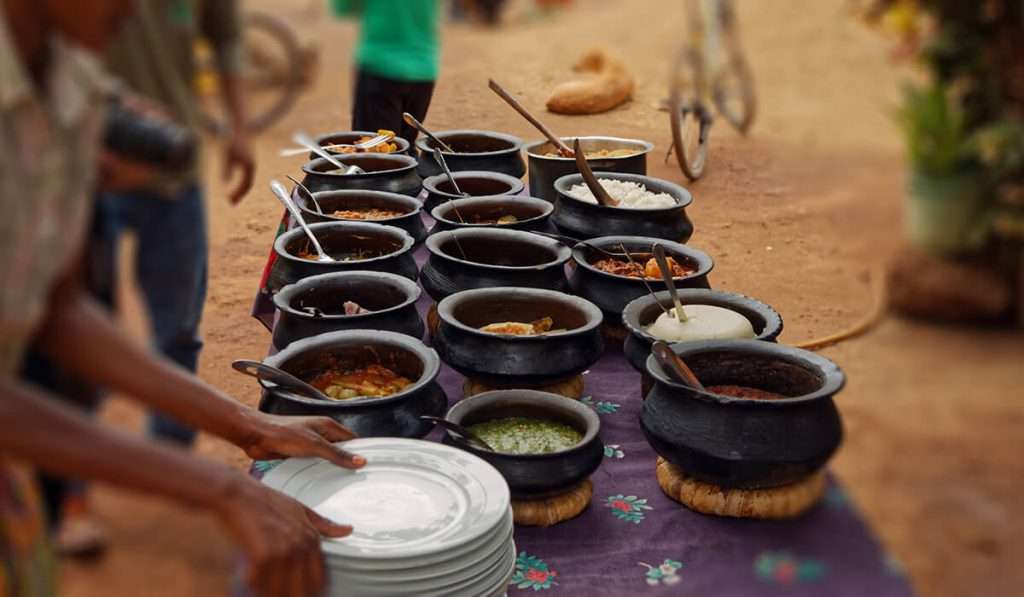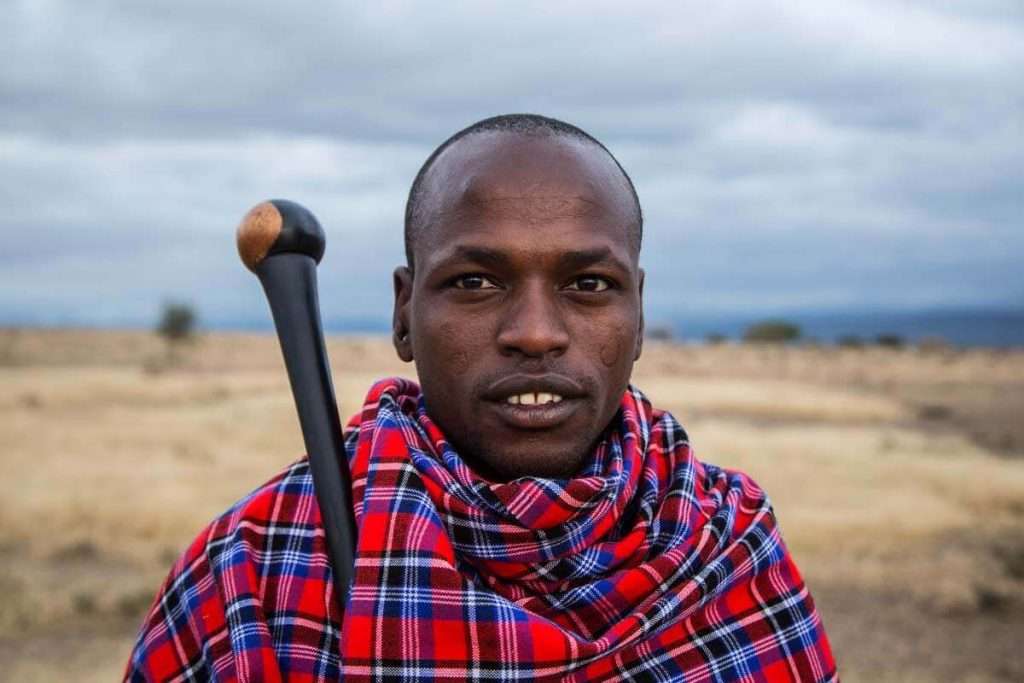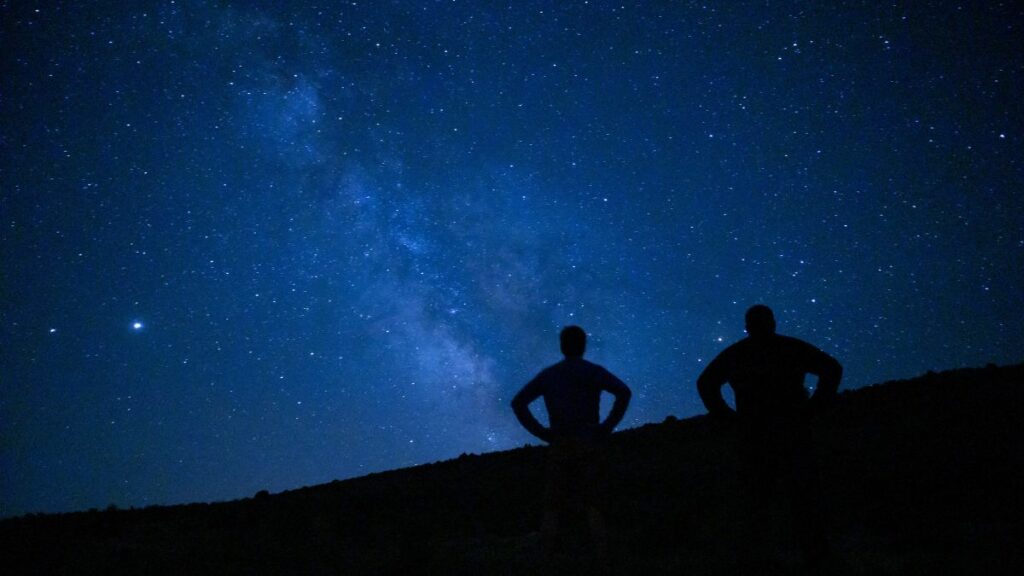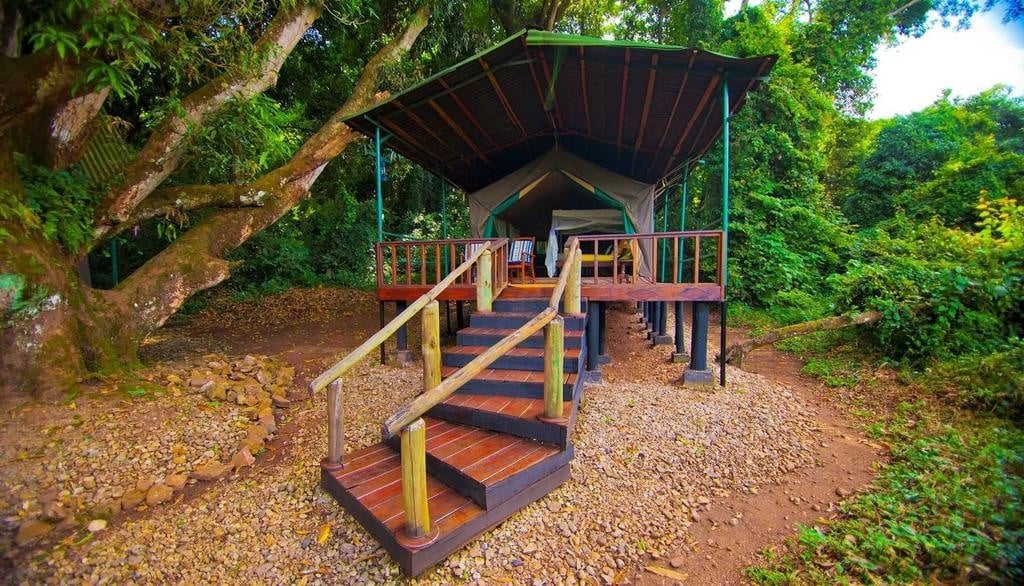Tanzania has more than just beautiful scenes and animals—it’s a country with a deep culture. When you visit Tanzania, remember these seven tips.
They will help you understand local customs and make friends with Tanzanians. Ready for Tanzanian culture? Don’t wait! Plan your trip now.
This journey will give you memories and special moments to keep forever. Before we review the handy tips, let’s first look into the history of Tanzanian culture.
Tanzanian Culture History
Tanzania is a culture-rich country on the Indian Ocean coast in East Africa. It has a notable history, from forming the Tanganyika African National Union to becoming the United Republic and traces of German East Africa.
This diverse country is home to many ethnic groups with different customs and traditions. A key shared value is respect for politeness. No matter their background, Tanzanians highly value respectful behavior, as seen in their daily habits.
Using the right hand for most social actions is an important rule in Tanzania. Always use your right hand to eat or to give or take things. This custom comes from religious and historical reasons in many Eastern societies. It’s now part of Tanzanian daily life.
Observing this rule is a small act on your part, but it carries significant implications. It earns you respect among Tanzanians and shows you value and understand their customs.
Cultural Heritage of Tanzania
Tanzania’s culture shines in its music and expressions of patriotism. For example, the national anthem of Tanzania shows the country’s pride and diversity.
Many talented musicians from South Africa and Tanzania add to the culture. Plus, Tanzanians are famous for being friendly and having warm smiles.
When encountering locals, a simple smile can go a long way in breaking barriers and developing connections. It might seem a small gesture, but Tanzanians appreciate it hugely, as it mirrors their openness towards guests.
So, whether you’re exploring busy markets on the East African coast or finding hidden trails, remember to smile when saying hi to people! This will make your talks friendlier and help you to understand and enjoy this exciting culture better.
Now, let’s move on to the seven handy tips on Tanzanian culture.
1. What to wear in Tanzanian culture

Tanzanians value the way you dress. And a well-dressed person is more respected in their culture. Even the poorest in Tanzania will try their best to dress well. When going out in public, it’s best to dress modestly. Tourists with a bit of bare skin is tolerated, but it’s better be on the conservative side; especially in the light of the fact that half of Tanzania’s population is Muslim. At the hotel, resort or beach you can dress more casual.
For those heading to Zanzibar, remember the the island is predominantly Muslim. So, men…keep your muscular torso for the beach, and cover up with a shirt when heading into town. Similarly, ladies please avoid revealing, skimpy clothes when you’re heading out for a jaunt round town.
By following these clothing rules, you respect local customs and values, making your Tanzania trip even better.
2. Understand and Respect Local Etiquette

In the heart of East Africa, nestled along the vibrant coast of the Indian Ocean, lies the culturally rich country of Tanzania. It’s a diverse nation, harmoniously blending numerous ethnic groups with unique customs and traditions. Paramount among these shared values is the unwavering respect for politeness and decorum.
People in Tanzania, no matter their ethnic group, value respect. This is seen in their daily habits. For example, they always use the right hand for most actions. Always use your right hand to eat, pass, or get things.
This old rule comes from history and religion, which is common in many Eastern cultures. It has now become a regular part of life in Tanzania. When you follow this rule, you show Tanzanians you understand and care about their customs. This small act can help you earn their respect.
Moreover, Tanzanians are renowned for their friendly dispositions and warm smiles. When encountering locals, a simple smile can go a long way in breaking barriers and developing connections. It might seem a small gesture, but Tanzanians appreciate it hugely, as it mirrors their openness towards guests.
So, whether you’re navigating bustling markets on the East African coast or exploring hidden trails, don’t forget to share a warm Tanzanian smile when greeting people! Not only will this enrich your interactions, but it will also enhance your appreciation and understanding of this fascinating culture.
3. Food in Tanzanian culture
Understanding Cultural Etiquette
Understanding and respecting local customs is vital when you’re visiting Tanzania. It is one of the world’s most culturally diverse countries. In northern Tanzania and elsewhere, matters of politeness and respect are part of everyday life. This is strongly seen in the culinary world, too.
Not only in the Muslim community but also among people of other faiths, eating is seen as more than just a way to stop feeling hungry. Instead, shared meals are a community event.
They symbolize unity and show respect for each other. This strong sense of togetherness is common throughout Tanzanian society. This creates a friendly, respectful atmosphere, leaving a lasting impression on Tanzania’s visitors.
The Delicacies and their Symbolism
Enter a Tanzanian household, and you may find soup from boiled animal bones. This dish symbolizes unity and is often shared among family members and friends. Similarly, participating in such traditional foods respectfully communicates your appreciation for their significance in Tanzanian culture.
Observing Dining Etiquettes
Remember the specifics of Tanzanian dining etiquette, such as using your right hand while eating or passing around food. Although this observance might seem minute, it showcases your respectful attitude toward their long-standing societal norms and practices.
Savor but Respect
Experiencing Tanzanian food is a fun adventure full of unique tastes, textures, and traditions. Try the tasty spiced rice dish Pilau, often served on special occasions. Or, you could enjoy standard soft drinks and local beers.
Each dish and drink has its background and history. When enjoying these foods, remember to do so with respect for Tanzanian cultural practices. This will help you appreciate Tanzania’s food culture’s rich flavors and customs.

4. Public affection in Tanzanian culture

In the vibrant and richly diverse culture of Tanzania, understanding social etiquette, especially regarding public displays of affection (PDA). This is like unraveling an intricate tapestry woven with threads of respect, modesty, and tradition.
The Dance of Decorum
In Tanzanian society, modesty takes the lead, and respect calls the tune. Picture an old-world waltz with its elegant restraint – that’s how Tanzanians view affection. Blatant expressions of love or affection, such as holding hands, hugging, or kissing in public, especially between genders, can raise eyebrows or be seen as a faux pas.
City Lights vs Countryside Bright
In trendier urban realms, especially among millennials, attitudes towards PDA may lean towards a liberal bend. Still, most maintain a public decorum, erring on the side of caution. Venture away from city lights into the heart of traditional, rural settings, and you’ll find these norms are held even sacred.
The Cultural Chameleon
Are you planning a Tanzanian rendezvous? The golden rule to follow is a simple one – when in Rome, do as the Romans do. Or in this case, do as Tanzanians do! Respect the local customs, norms, and embrace the Tanzanian way of life. After all, deference is the sincerest form of respect, isn’t it?
To sum up, exploring Tanzanian culture is an enticing dance of discovery. With a dash of respect, a pinch of caution, and a hearty embrace of local customs, let this beautiful nation welcome you into a world of age-old traditions and spectacular sights!
5. Taking photos of locals in Tanzanian culture

In a world dominated by instant clicks and picture-perfect posts, it’s essential to uphold the human touch of courtesy and respect. When in Tanzania, always ask before you click!
It may seem like a simple act, but the impact of taking a photo without permission can often ripple wider and deeper than the image itself. It’s viewed as downright rude and can disrupt the very essence of your cultural exchange.
Adding an intriguing layer to this perspective are certain ethnic groups who harbor the belief that every photograph could somewhat steal a piece of their soul. Picture that – an innocuous click can carry the weight of spirit-shattering beliefs!
Remember you are a guest in their homeland, so treading lightly with your camera can make all the difference. Ask and respect their choice or give your lens a little vacation. After all, the most vivid moments are often best captured by the mind’s eye!
6. Language

The official language in Tanzania is Swahili but many people speak English. Having a few key phrases up your sleeve will make all the difference in your engagements with locals. One word you’ll get to know very well is: Mzungu. It means “person who walks in circles’, ‘aimless wanderer’, ‘nomad’ or ‘traveller’. Locals use it to describe Western tourists, and is in no way intended to be offensive.
7. Respect for elders

In Tanzania, treating elders and people with authority with high respect is an essential part of their culture. Tanzanians show this respect in several ways.
One of these ways is by giving importance to the opinions of these respected individuals. This means taking the time to listen to what they have to say and considering their viewpoints.
Another way of showing respect is by asking for their blessings on various occasions. This can be during festivities, before starting a journey, or even before making important decisions. Additionally, the language used to speak to elders or authority figures is often polite and formal.
Using the correct form of address and polite language is very important in Tanzanian culture. By following these societal norms, you can show that you understand and respect how Tanzanian society works. This can help you connect better with the local people and ensure a more enriching cultural experience.
Getting there?
Interested in visiting Tanzania — but not sure which tour, or agency to take? Easy Travel pride themselves on their 30+ years of experience providing amazing encounters, from safari tours to hiking tours as well as day tours. Check out our selection of tours here!
Frequently Asked Questions (FAQs)
What is the official language spoken in Tanzania?
Tanzania’s official language is Swahili, also known as Kiswahili. This language is widely spoken throughout the country and is used in education, business, and government affairs.
In addition to Swahili, English is taught in schools and often expressed in major cities, tourist areas, and establishments. However, Tanzania is home to more than 120 ethnic groups, and many have their local languages.
Learning a few useful Swahili phrases before visiting Tanzania will make your journey more enjoyable and show respect for the locals.
What are the main religions in Tanzania?
Tanzania is a religiously diverse country, with most of the population identifying as Muslim or Christian. Christianity and Islam account for roughly 60% and 35% of the population. The remaining population adheres to indigenous beliefs or other religions – such as Hinduism and Baha’i.
Religious coexistence and tolerance are prevalent in Tanzania, and visiting places of worship is a profound way to experience the rich spiritual tapestry of the nation. Be sure to dress modestly and follow the specific etiquette when visiting religious sites.
What traditional music can I expect to hear in Tanzania?
Tanzanian music encompasses various styles and influences, reflecting the diverse ethnic groups within the country. Popular traditional music styles include Taarab, Bongo Flava, and Ngoma.
Taarab is a fusion of Swahili and Arab musical traditions, frequently associated with the coastal region and the islands of Zanzibar. On the other hand, Bongo Flava incorporates elements of hip-hop, R&B, and reggae, showcasing a modern twist on Tanzanian sounds.
Ngoma, meaning “dance” in Swahili, is a traditional musical form that accompanies rituals, celebrations, and ceremonies throughout various tribes in Tanzania.
What types of clothing are traditionally worn in Tanzania?
Traditional clothing in Tanzania varies among the different ethnic groups and regions. In general, Tanzanian attire is modest and vibrant, with both men and women wearing clothes made from colorful fabrics.
Women often wear a “khanga” or “kanga” – a printed fabric wrapped around the waist, often teamed with a matching headscarf. Men wear a “kikoi,” a colorful, rectangular piece of cloth wrapped around the waist or draped over a shoulder. Dress modestly when visiting, especially in rural and religious areas.
What are the most critical Tanzanian festivals and celebrations?
Taking part in Tanzanian dances and ceremonies depends on the event and place. Many public festivals let visitors join, like dancing the Ngoma or trying other traditional dances.
But some dances or ceremonies are special for religious reasons or are only for specific tribes or groups. When going to a dance or ceremony, always ask your host or guide if it’s okay to join and watch their cues to follow proper customs and manners.
Can I participate in Tanzanian dances and ceremonies?
Taking part in Tanzanian dances and ceremonies depends on the event and place. Many public festivals let visitors join, like dancing the Ngoma or trying other traditional dances.
But some dances or ceremonies are special for religious reasons or are only for specific tribes or groups. When going to a dance or ceremony, always ask your host or guide if it’s okay to join and watch their cues to follow proper customs and manners.
What is a traditional Tanzanian greeting?
A traditional Tanzanian greeting is based on the Swahili language and begins with the word “Jambo” or “Hujambo,” which means “Hello.” The respondent would typically reply with “Sijambo,” saying, “I am well.”
Greetings often include additional inquiries about each other’s well-being or family, reflecting Tanzania’s friendly and respectful spirit. Handshakes are common when greeting someone, especially among men.
Remember that using your right hand for handshakes is essential, as many African cultures consider the left hand impure.
What types of traditional Tanzanian cuisine can I expect?
Tanzanian food is tasty and comes from African, Arab, and Indian cooking styles. Common dishes include the following:
- Ugali (a type of cornmeal porridge).
- Nyama Choma (grilled meat).
- Chapati (a flatbread like Indian roti).
People often eat a spiced rice dish called Pilau at special events. The coastal area, like Zanzibar, is known for its seafood and spices. When eating in Tanzania, it’s essential to use your right hand and share meals politely, following local traditions.
How is traditional Tanzanian art and craftsmanship expressed?
Tanzanian art has many forms, like wood carvings, paintings, pottery, and fabrics. Makonde people are known for their detailed wood carvings of humans and animals.
Tingatinga paintings are filled with bright colors showing animals, plants, and local scenes. Traditional clothes, like the “khanga” and “kikoi,” are made from colorful textiles. Buying art from local crafters gives you great souvenirs and helps support Tanzanian art.
What are some traditional Tanzanian sports or games that I can experience?
Traditional sports and games are an integral part of Tanzania’s cultural heritage. The most popular sport in Tanzania is soccer, also known as football, which unites people of all backgrounds and ethnicities.
Traditional games involve “bao,” a strategy board game using seeds or stones; “mchezo wa kisigino,” a skillful game with spinning wooden tops; and “soka la mitaani,” a fun street soccer variation. If possible, playing with locals offers a unique and enjoyable cultural experience.
What are traditional gender roles in Tanzania?
In the past, Tanzanian culture had specific roles for men and women. Men usually worked in farming, herding, or hunting, while women cared for the home and children. They sometimes helped in trade or agriculture, too.
Today, Tanzania sees more gender equality, with women participating in education, government, and other essential roles. Knowing these traditional roles and respecting the progress toward equality in Tanzania is necessary.
































